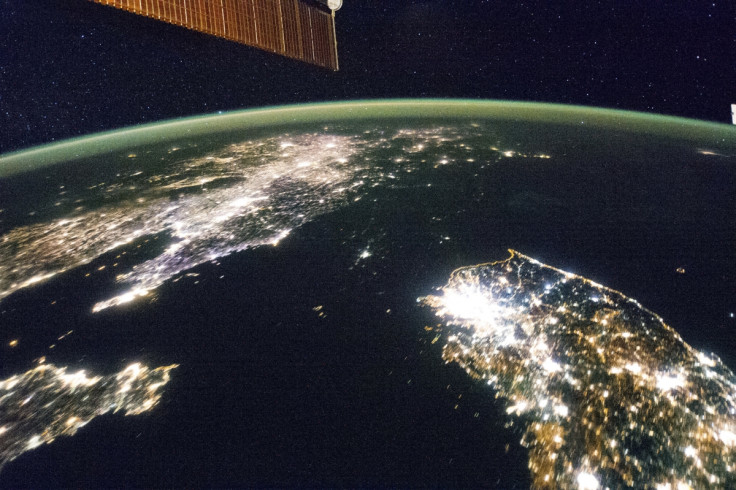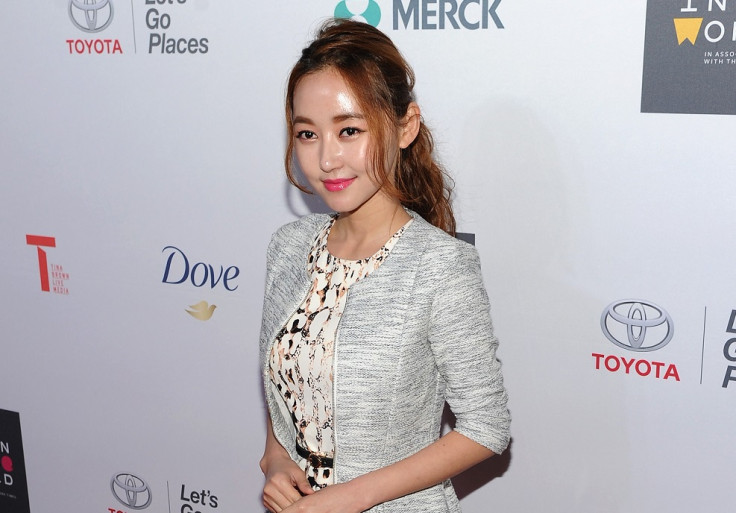North Korean defector Yeonmi Park: 'I believed my Dear Leader could read my mind' [Video]
A North Korean defector and human rights activist Yeonmi Park has spoken out about living in fear and repression under the Kim dictatorship, before she escaped as a teenager. Speaking at the Women In The World conference last week, she said she used to believe Kim Jong-il could read her thoughts.
"I believed my Dear Leader could read my mind − I thought if I thought a bad thing, he could punish me," she said at the event. "I grew up with fear. My mother told me not to whisper because the birds and mice might hear you."
Park, who was born in the northern city of Hyesan on the border of China, escaped the country's oppressive regime in 2007 with her mother only to face trafficking and further hardship. Now 22, Park is a renowned advocate of human rights and is studying criminal justice at university in South Korea. She has recounted her traumatic story in a recently-released book, In Order to Live: A North Korean Girl's Journey To Freedom.
Park's comments came ahead of celebrations in Pyongyang to mark the 70<sup>th anniversary of the ruling Workers' Party in North Korea. In a rare live televised speech, Supreme Leader Kim Jong-un said his country was "ready" to respond to any US threat, as troops marched in formations across Kim II Sung Square in the capital.
Speaking at the event on 9 October, Park described her former life in North Korea. During the famine of the 1990s, up to three million North Koreans starved to death. Food shortages plague the country to this day. "I starved for a long time until I escaped. I ate anything I could get from nature – grasshoppers, dragonflies," she said.
Being so close to China, she was able to see what life was like across the border. "I grew up seeing lights from China because North Korea is so dark and you never had this light. And I wondered why we didn't have these lights."

One of the most famous images of the country is a photograph taken from space showing a pitch black North Korea next to the brightly-lit China and South Korea. "I think that this photo defines North Korea, the darkest place on the earth," Park said.
At the age of 13, Park urged her mother to flee to China after illegally watching Chinese television as a child. Park's father stayed behind to minimise the risk of being caught, but would join them later. "Of course I didn't know the word freedom, I didn't know the concept of it, we don't have a word for liberty, or love, the love that we know here – you are not allowed to express love for your lovers and mothers, only love for the regime.
"I escaped for a bowl of rice and that's what we risked our lives for."
One of the first things she witnessed after crossing the frozen river into China was her mother being raped. "The old man was trying to rape me, and I didn't know what sex or what kissing was, and my mother protected me there."
Park and her mother were trafficked around northern China for two years. She described how she was forced to sell her mother to another farmer in order for her to survive. "I had sold my mom because the man who bought me could not even feed us, so it was better for me to sell her to somebody who could feed her better. She was in a better place."
In early 2008, Park's father died of cancer and the family were forced to bribe a crematorium to cremate his body at night, as not to attract the attention of authorities. Park and her mother spent a short period at a Christian shelter run by Chinese and South Korean missionaries in Qingdao, where there is a large Korean community, before fleeing to South Korea via the Gobi desert in Mongolia.

When Park arrived in South Korea, the education she had received in the North was equivalent to just two years of proper education. She recalled some of the maths questions she encountered as a young child: "If there are four American bastards and you kill two of them, how many are left to kill?"
Everything changed when Park arrived in South Korea, where she said she became a self-confessed "learning machine" as a ticket to a different life.
"I learned amazing things, such as human rights, freedom and dignity, and this was so new to me to learn about this," Park told the audience. "I never knew what Africa was, or what Canada was, I learnt about the first time we went to the moon, what the universe is, what human evolution is, books had an answer for everything. Freedom has different levels and that's what I'm learning every day."
"Don't think of me as a victim. Even this crazy dictator is strong, but not as strong as justice," she said, "I'm glad I had the opportunity to fight for my freedom and be here on this stage."
Finally, Park urged the West not to see Kim Jong-un as a comedy figure. Under his rule, North Korea remains one of the most repressive regimes in the world. A 2014 UN Commission of Inquiry found that abuses in the country were unparalleled in the contemporary world, and included murder, enslavement, torture, rape and forced abortions.
North Korea also operates secretive prison camps, called kwan-li-so, where perceived opponents of the regime face torture, abuse, forced labour and starvation. "To me, he is not a joke," Park said. "To me, he is not funny. He is killing millions of people."
© Copyright IBTimes 2025. All rights reserved.






















